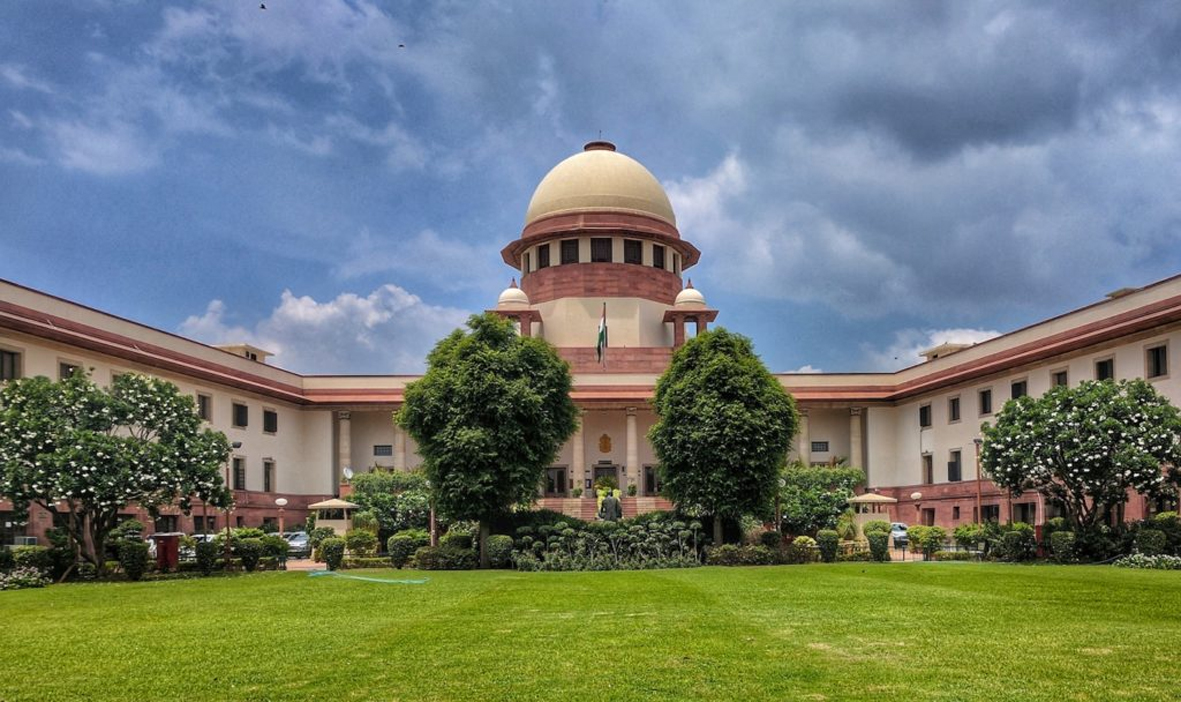New Delhi, Nov 11: The Supreme Court on Friday expressed displeasure over the Centre keeping pending the names recommended for appointment as judges in the higher judiciary, including those reiterated by the apex court Collegium, saying it was “not acceptable”.
The top court observed that the method of keeping names on hold is becoming “some sort of a device” to compel the persons, whose names have been recommended for appointment as judges in the higher judiciary, to withdraw their consent.
“Just keeping the names pending is something not acceptable,” a bench of Justices S K Kaul and A S Oka said.
The bench issued notice to the incumbent Secretary (Justice) of the Union Law Ministry seeking response on a plea alleging “wilful disobedience” of time frame laid down to facilitate timely appointment in the apex court’s April 20 last year order .
The plea filed by the Advocates’ Association Bengaluru, through lawyer Pai Amit, has raised the issue of “extraordinary delays” in the appointment of judges to the high courts as well as the segregation of the names, which is “detrimental to the cherished principle of the independence of the judiciary”.
It has referred to 11 names which were recommended and later, reiterated also.
The top court noted that the critical position of vacancies in the high courts and delay in appointment of judges had constrained a three-judge bench of the apex court to pass the April 20 last year order seeking to lay down broad timelines within which appointment process be completed.
“If we look at the position of pending cases for consideration, there are 11 cases pending with the government which were cleared by the Collegium and yet are awaiting appointment,” the bench observed.
It said the delay in clearing the recommended names, including those which have been reiterated by the Collegium, has led persons withdrawing consent and the system lost the opportunity of having an eminent person on the bench.
“We find the method of keeping names on hold is becoming some sort of a device to compel these persons to withdraw their names, as has happened,” the apex court observed.
It said there are also names which have been reiterated by the Collegium but are still pending with the government.
It noted that counsel for the petitioner has said that one of the persons, whose name was pending after being reiterated, has even passed away.
“Needless to say that unless the bench is adorned by competent lawyers, the very concept of rule of law and justice suffers in this elaborate procedure…,” the bench observed.
It also noted that senior advocate Vikas Singh, who is the president of the Supreme Court Bar Association (SCBA), has submitted before it that even the recommendation made for appointment in the Supreme Court more than five weeks is pending appointment.
“We are really unable to understand or appreciate this,” the bench said, adding that it is issuing “simple notice” to the current Secretary (Justice) and Secretary (Administration and Appointment) for the time being.
The bench posted the matter for hearing on November 28.
The plea said the failure to implement the binding decision of the Collegium headed by the Chief Justice of India, even upon reiteration, would amount to a wilful disobedience of the orders of the apex court.
In its April last year order, the apex court had said the Centre should appoint judges within three-four weeks if the Collegium reiterates its recommendations unanimously.
Coming out with timelines to facilitate the process, it had said the Centre should proceed to make appointment immediately after the apex court Collegium recommends the names and if the government has any reservations on the “suitability or in public interest”, it may send it back to the Collegium with the specific reasons for reservation recorded.
“If the Supreme Court collegium after consideration of the aforesaid inputs still reiterates the recommendation(s) unanimously (Cl. 24.1), such appointment should be processed and appointment should be made within three to four weeks,” it had said.
The apex court had said it would be “advisable” to follow the timelines, in addition to those mentioned in the Memorandum of Procedure as finalised by the Collegium on March 10, 2017 where certain time frames have been stated for appointment of judges to the high courts.
“The Intelligence Bureau (IB) should submit its report/inputs within four to six weeks from the date of recommendation of the high court Collegium, to the Central Government,” it had said.
The top court had said it would be desirable that the Centre forward the files/recommendations to the apex court within eight to 12 weeks from the date of receipt of views from the state government and the report/input from the IB.
The apex court had noted in its order that the then Attorney General had placed before it the appointment position in the high courts to contend that against the sanctioned strength of 1,080 judges, 664 judges have been appointed with vacancies of 416 judges. (AGENCIES)
Trending Now
E-Paper


